Search
Search Results
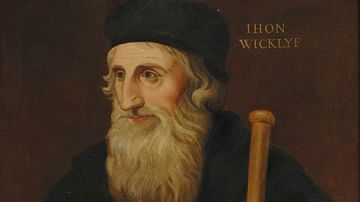
Definition
John Wycliffe
John Wycliffe (l. 1330-1384, also John Wyclif) was an English theologian, priest, and scholar, recognized as a forerunner to the Protestant Reformation in Europe. Wycliffe condemned the practices of the medieval Church, citing many of the...
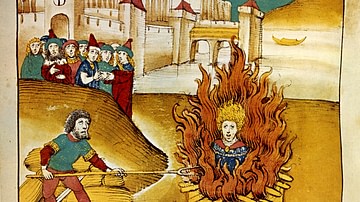
Definition
Jan Hus
Jan Hus (also John Huss, l. c. 1369-1415) was a Czech philosopher, priest, and theologian who, inspired by the work of John Wycliffe (l. 1330-1384) challenged the policies and practices of the medieval Church and so launched the Bohemian...
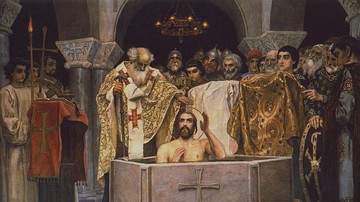
Definition
The Medieval Church
Religious practice in medieval Europe (c. 476-1500) was dominated and informed by the Catholic Church. The majority of the population was Christian, and "Christian" at this time meant "Catholic" as there was initially no other form of that...

Article
Six Great Heresies of the Middle Ages
The medieval Church established its monopoly over the spiritual life of Europeans in the Early Middle Ages (c. 476-1000) and consolidated that power throughout the High Middle Ages (1000-1300) and Late Middle Ages (1300-1500). Along the way...
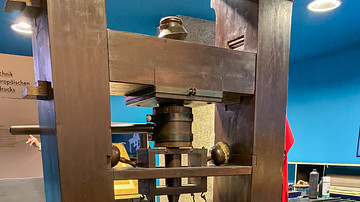
Article
The Printing Press & the Protestant Reformation
The printing press, credited to the German inventor and printer Johannes Gutenberg (l. c. 1398-1468) in the 1450s, became the single most important factor in the success of the Protestant Reformation by providing the means for widespread...
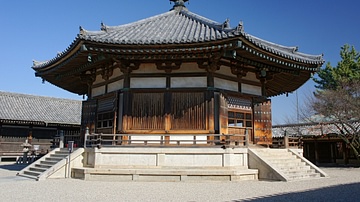
Definition
Horyuji
The Horyuji Temple near Nara in Japan was founded in 607 CE by Prince Shotoku and is the only surviving Buddhist monastery from the Asuka Period in its original state. The complex, consisting of 48 listed buildings including a 5-storey pagoda...

Definition
Bohemian Reformation
The Bohemian Reformation (c. 1380 to c. 1436) was the first concerted effort by Catholic clergy to reform the abuses and corruption of the medieval Church. Bohemian clerics and theologians called for reform and, like later advocates, initially...
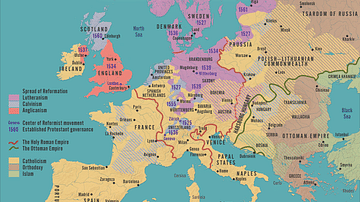
Definition
Protestant Reformation
The Protestant Reformation (1517-1648) refers to the widespread religious, cultural, and social upheaval of 16th-century Europe that broke the hold of the medieval Church, allowing for the development of personal interpretations of the Christian...
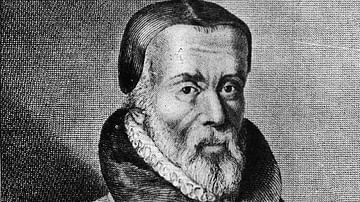
Definition
William Tyndale
William Tyndale (l.c. 1494-1536) was a talented English linguist, scholar and priest who was the first to translate the Bible into English. Tyndale objected to the Catholic Church’s control of scripture in Latin and the prohibition against...

Image
Great Hall & Lesser Hall, Chepstow Castle
The Great Hall and Lesser Hall at Chepstow Castle in Wales. The halls contained the domestic facilities of the castle. The castle was first built c. 1067 CE by Earl William FitzOsbern, and then extended from c. 1190 CE by Sir William Marshal...